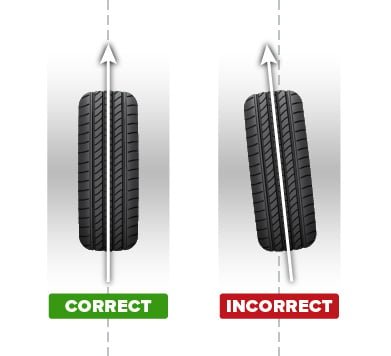
Unveiling The Duration Of Correctional Officer Training: How Long Is Correctional Officer Training?
Correctional officer training typically lasts around six to twelve weeks, depending on the jurisdiction and specific requirements. The duration of the training is crucial for equipping officers with the necessary skills and knowledge to excel in their roles within the challenging prison environment. From physical fitness to de-escalation techniques, the training covers a wide range of topics to prepare officers for their duties. Understanding how long correctional officer training lasts is vital for individuals considering a career in this demanding but rewarding field.
How Long is Correctional Officer Training: A Comprehensive Guide
Welcome to our detailed guide on correctional officer training duration. If you’re considering a career in law enforcement or are simply curious about the training process, you’ve come to the right place. In this article, we will delve into the ins and outs of how long correctional officer training typically lasts, what it entails, and why it is crucial for those entering this demanding profession.
Understanding the Importance of Correctional Officer Training
Correctional officers play a vital role in maintaining safety and security within correctional facilities. They are responsible for overseeing inmates, enforcing rules and regulations, and ensuring the well-being of both prisoners and staff. Given the challenging nature of this job, comprehensive training is essential to prepare individuals for the complexities they will encounter in their daily duties.
Duration of Correctional Officer Training Programs
Typically, correctional officer training programs vary in length depending on the specific requirements of the jurisdiction or agency. On average, these programs can range from a few weeks to several months. Let’s take a closer look at the different components that make up the training process:
Basic Training
The core of correctional officer training is the basic training program, which covers essential topics such as security procedures, self-defense techniques, emergency response, and legal frameworks. Basic training usually lasts between 6 to 12 weeks, providing recruits with a solid foundation of knowledge and skills needed to perform their duties effectively.
Specialized Training
In addition to basic training, correctional officers may undergo specialized training based on their assigned roles or the specific requirements of their facility. This could include training in areas such as crisis intervention, inmate supervision, or substance abuse management. Specialized training programs can extend the overall training duration by a few weeks to several months.
On-the-Job Training
After completing formal training programs, new correctional officers often undergo on-the-job training, where they shadow experienced officers to gain practical experience in a real-world setting. This phase of training is crucial for applying theoretical knowledge to actual scenarios and typically lasts for a few weeks to several months, depending on the individual’s progress and the facility’s requirements.
Factors Influencing Correctional Officer Training Duration
Several factors can influence the duration of correctional officer training programs, including:
State or Agency Requirements
Each state or correctional agency may have its own set of training requirements and standards. Some jurisdictions may mandate longer training periods to ensure that officers are well-prepared to handle the challenges of the job.
Complexity of the Role
The complexity of the correctional officer’s role can also impact the duration of training. Facilities that house high-security inmates or deal with specialized populations may require more extensive training to equip officers with the necessary skills and knowledge.
Recruit Background
The backgrounds and prior experience of recruits can influence training duration. Individuals with prior law enforcement or military experience may undergo accelerated training programs, while those with no previous experience may require more extensive training to build foundational skills.
Benefits of Comprehensive Correctional Officer Training
Investing in comprehensive correctional officer training has numerous benefits, both for the officers themselves and the institutions they serve. Some key advantages include:
Enhanced Safety and Security
Well-trained correctional officers are better equipped to handle volatile situations, respond to emergencies effectively, and ensure the overall safety and security of the facility.
Improved Officer Well-Being
Proper training can help reduce officer stress levels, enhance job satisfaction, and promote mental and emotional well-being by providing officers with the tools and strategies to cope with the challenges of their job.
Professional Development
Quality training programs offer opportunities for professional growth and skill development, allowing correctional officers to advance their careers, take on specialized roles, and contribute more effectively to the correctional system.
In conclusion, the duration of correctional officer training can vary based on a variety of factors, but it typically spans several weeks to several months. Comprehensive training programs are essential for equipping correctional officers with the skills, knowledge, and expertise needed to fulfill their roles effectively and uphold the safety and security of correctional facilities. By investing in quality training, both officers and the institutions they serve stand to benefit significantly.
Thank you for reading our guide on how long correctional officer training lasts. We hope this information has provided valuable insights into the training process for aspiring correctional officers and those interested in learning more about this critical profession.
Correctional Officer Training Academy Physical Demand
Frequently Asked Questions
How long does correctional officer training typically last?
Correctional officer training programs usually last around 8 to 12 weeks, depending on the specific requirements of the facility or jurisdiction. This training period includes a combination of classroom instruction, physical fitness training, and on-the-job experience.
What topics are covered during correctional officer training?
During correctional officer training, recruits are taught various subjects such as ethics, legal aspects of corrections, report writing, emergency procedures, self-defense, interpersonal communication, and conflict resolution. The training is designed to equip officers with the necessary skills to handle the challenges of working in a correctional facility.
Do correctional officers receive any specialized training beyond the basic program?
Yes, correctional officers often receive ongoing specialized training throughout their careers to stay updated on new procedures, technologies, and best practices in the field. This additional training helps officers enhance their knowledge and skills to effectively perform their duties in a dynamic environment.
Is there a physical fitness component to correctional officer training?
Yes, correctional officer training programs typically include a physical fitness component to ensure that officers are physically capable of handling the demands of the job. Physical fitness training may include strength training, cardiovascular exercise, endurance drills, and agility tests.
Final Thoughts
Correctional officer training typically lasts around 6-12 weeks. During this time, trainees learn essential skills such as self-defense, communication, and legal procedures. The training is rigorous and comprehensive to prepare officers for the challenges of working in a correctional facility. Overall, the duration of correctional officer training plays a crucial role in equipping individuals with the knowledge and experience needed to succeed in this demanding profession.



